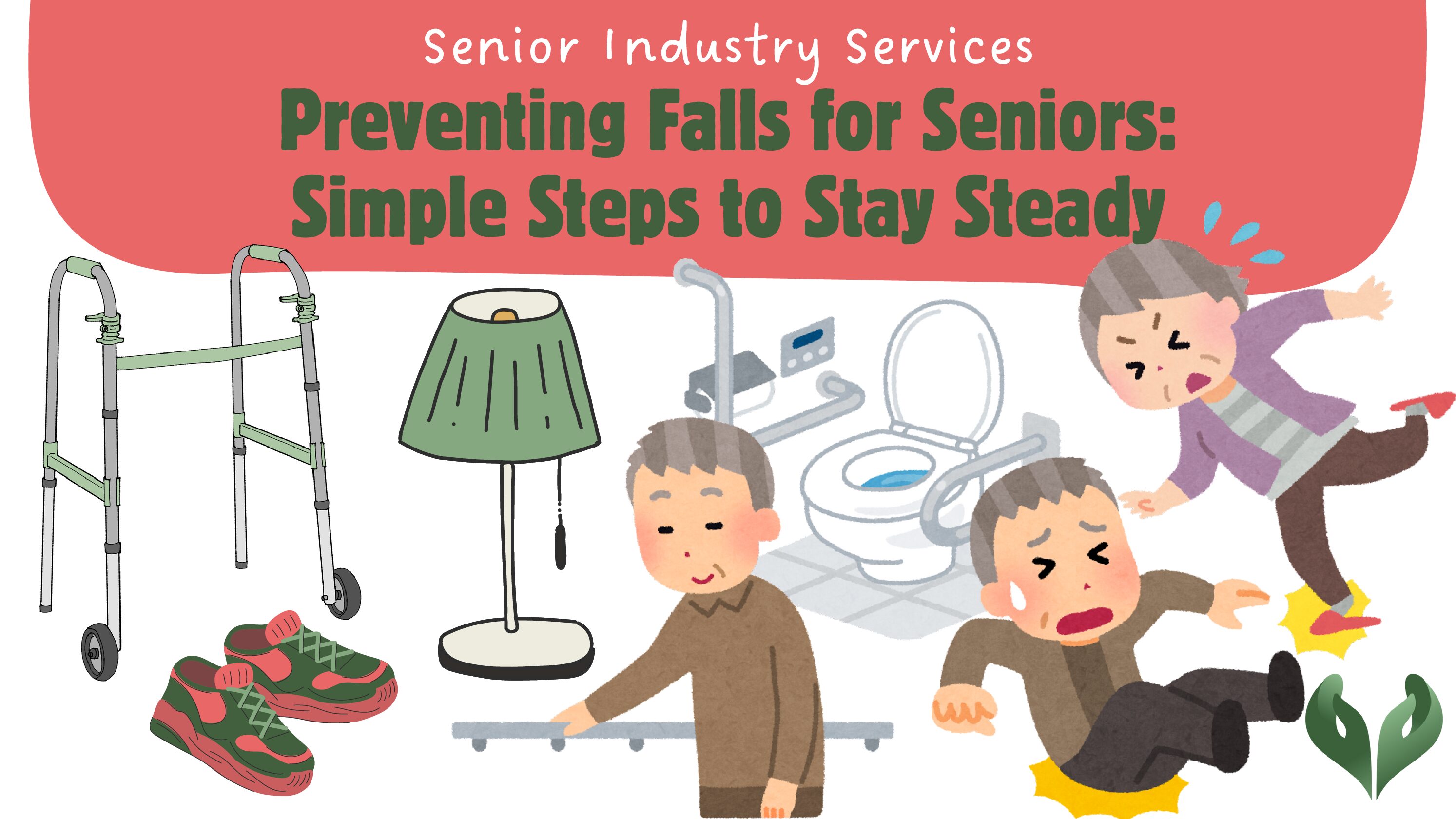One of the most common—and dangerous—health risks to seniors today is falls. The CDC reports that 1 in 4 seniors fall each year, and having fallen once doubles your chances of falling again. The good news is that most falls are avoidable with some simple changes to lifestyle, environment, and routine.
At Senior Industry Services, we're committed to helping seniors live independently and safely. Below are some simple tips to help seniors reduce the risk of falls and maintain balance:
1. Stay Active
Poor balance and weak muscles are major contributors to falling. Exercise will strengthen, increase flexibility, and improve coordination.
- Walk daily, even if only for a brief walk
- Practice gentle yoga and stretching
- Resistance training with light weights or resistance bands
- Balance exercises like standing on one leg or heel-to-toe walking
You can talk to your doctor about a personalized exercise program and specific exercises they might recommend for you, especially if you have pre-existing health concerns.
2. Home Safety
Most falls happen at home, but with a few small changes, your home can be made fall-proof.
- Clear tripping hazards: Take away loose rugs, cords, and other obstacles.
- Install handrails and grab bars: Handrails along both sides of stairs and grab bars in the bathroom, especially around the toilet and shower, can provide support and reduce the hazard of falling.
- Provide good lighting: Well-lit pathways, especially in hallways and at the top and bottom of stairs, can improve visibility and reduce the hazard of tripping.
- Make the shower safe: In addition to grab bars in the shower, you can also put non-slip mats for extra traction.
3. Wear the Proper Shoes
Shoes are more critical than you think. Avoid wearing slippers or shoes with slippery soles. Here are some tips for proper footwear to avoid falls:
- Wear shoes with non-slip soles
- Wear shoes with low heels with good support
- Avoid walking in socks on slippery floors
4. Stay on Top of Your Health
Certain medical conditions and medicines cause dizziness or sleepiness, which increases your risk of falling. Discuss your conditions and medicines with your doctor and how to reduce the risk of falling.
- Have regular vision and hearing examinations and treat any medical conditions that might be causing balance problems, like vertigo or neurological disorders.
- Stay hydrated: Dehydration leads to dizziness and fainting, which can lead to falls.
- Control of chronic conditions like diabetes, arthritis, or neuropathy can help reduce falls as well.
5. Use Assistive Devices
Assistive aids to use: Some elderly people can get additional support and balance through the use of walkers or canes.
- Canes or walkers for stability
- Grabbers for reaching items
- Raised toilet seats or shower chairs
You can talk to an occupational therapist for more personalized recommendations.
Some other important tips include:
- Stand up slowly: Getting up from a lying or sitting position too quickly can lead to dizziness and low blood pressure, which may increase the risk of falls.
- Don't skip meals: Skipping meals can cause dizziness and weakness, increasing the likelihood of falling.
By taking these steps, seniors can avoid falls and maintain their independence and quality of life.
Preventing falls is not just a question of avoiding injury—it's a question of preserving independence, confidence, and peace of mind. By taking a few simple precautions, seniors can reduce their chances of falling and live life with greater freedom and safety.
If you or your loved one need help assessing fall hazards or fall-proofing the house, Senior Industry Services is here to help. Contact us today for personalized advice.
Written for Senior Industry Services by Lauren Hope Bartling

